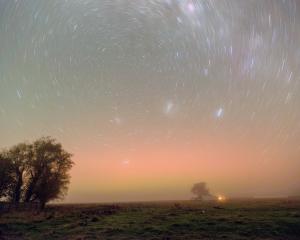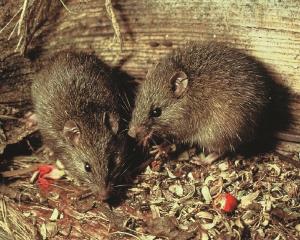
It was the trip of a lifetime: to New York and a seat at the United Nations as part of the 61st Commission on the Status of Women. Helen Speirs continues her insider's view in the second of this two-part series.
Attending the Commission on the Status of Women was at once a fascinating, formidable and sometimes frustrating experience; and one that required serious fortitude. Scheduled weekday events began at 8.30am and often ran through the day until 8.30pm.
- Read also: Women united Part 1
- A world of experience
They comprised commission sessions, side events, parallel events, expert panels, workshops and briefings. Then there were official breakfasts and networking dinners on top. It was confusing, overwhelming and only possible to attend a tiny fraction of what was on offer at any one time. (Sightseeing for me took a distinctly back seat and was squeezed into the odd free hour, evenings and weekends: although even some of these had events scheduled, too.)
There were four distinct strands to the two-week session: the commission itself (outlined last week), a comprehensive schedule of official commission side events, an NGO forum with sessions that helped explain the workings of the commission, and an equally comprehensive schedule of NGO parallel events. (There was also a two-day youth forum at the start of the commission.)

SIDE EVENTS
The permanent missions to the UN and UN entities (such as UN Women, Unesco, the WHO and others) hold a comprehensive programme of side events to the commission within the UN premises. These provide the opportunity to discuss the commission themes and other gender equality issues.
On the first Monday alone, there were almost 30 separate events. There were more than 200 over the course of the two weeks. The countries and organisations (including the likes of Malta, Saint Lucia, Jordan, Liechtenstein, the African Female Mayors Network, Arab Women's Organisation, the Holy See, Woomb International) were as diverse as the subjects of the presentations (gender equality the Nordic way, women in the Italian armed forces, fertility, abortion, contraception, intimate partner violence, resilience, justice, finance, trade, modern-day slavery, trafficking, sustainable peace, female genital mutilation (FGM), child marriage, refugee women, unpaid care and domestic work, work/life (im)balance, sexist hate speech, land tenure, poverty, food security, water, sanitation and hygiene).
New Zealand co-sponsored sessions on indigenous women's economic empowerment, and the role of national human rights institutions in promoting and protecting women's economic participation in the changing world of work.
At the side events, various key global strategies were launched, including the European Union's year of focused actions to combat violence against women and girls, a global award for women, a million girls in Stem (science, technology, engineering and maths) campaign, a global platform on gender equality and religion, and an "equal pay platform of champions'' with a "stop the robbery'' message that the global pay gap effectively robs women of 23% of their pay.

NGO FORUM
The NGO Committee on the Status of Women promotes women's rights and monitors events at the UN on a daily basis throughout the year.
It holds a two-week forum that runs simultaneously with, and acts as something of a bridge to, the commission.
There are orientation, training and information-sharing events designed to explain the workings of the commission, the role of NGO delegates and the progress of the negotiations. There were regional caucuses (which examined issues affecting women at a regional level), advocacy training sessions and dinners (where delegates could network, share strategies, plan how best to lobby governments, and work on joint statements or wording for the Agreed Conclusions of the commission) and daily morning briefings (which reported on the previous day's negotiations of the commission, before the commission started for the next day). Most of these took place at the Church Centre for the United Nations opposite the UN.
NGO PARALLEL EVENTS
The forum also contained a range of relevant parallel events run by NGOs and faith-based organisations from around the world. These were every bit as diverse as the commission side events, numbering well in excess of 200 over the two weeks. At any one time there were up to 10 events, panels or workshops from which to choose.
Events were spread between the church centre and several other venues 10-15 minutes' walk away. The need to be strategic when selecting sessions quickly became obvious. Still, we literally ran ourselves ragged darting between sessions and sites (in addition to the commission and side events at the UN).
The parallel events were fascinating. They could feature high-flying chief executives and businesswomen, human rights lawyers, health professionals or activists working at a grassroots level in some of the most deprived or war-torn communities. Many of the sessions were in small groups where participation and information and experience-sharing was encouraged and supported.
I attended a range of sessions on subjects including xenophobia and the politics of exclusion, widowhood and female-headed households, the effect of sexism in the workplace, and one on female judges, the law and its interpretations.

A New Zealand panel, which included Equal Employment Opportunities Commissioner Jackie Blue, discussed the situation of women in the workplace back home. There was much cynicism about progress around pay parity, domestic and sexual violence, and the outlook for Maori and Pasifika women. Speakers outlined how the Government had to be dragged through the courts before it agreed on a pay equity process for care workers. Dr Blue said pay discrimination had huge ramifications for women, including in terms of retirement savings, and a Human Rights Commission project found women earned about $600,000 less than men by the end of their working lives. She was, however, excited about Green Party MP Jan Logie's member's Bill on domestic violence workplace protections, which has been supported by the Government to the select committee stage.
You never knew what to expect at these sessions. At one panel about female genital mutilation, with four African speakers, which focused on the importance of getting men and boys involved in stopping the practice, a member of the audience, a young Maasai warrior in national dress, rose to tell us he was literally standing up to "say no to FGM''.
At another on women against extremism, pictures of slain Iranian female activists, who paid the ultimate price for speaking out against the regime, lined the walls.
At another, on changing climate/changing work and the human right to water, a native American Indian tribal chief, Caleen Sisk, talked of the "extermination'' and removal of her Winnemem Wintu people in the California land grabs, and the destruction of waterways, fauna and their way of life. In the next breath, she talked about how she had travelled to Canterbury and is working with local Maori to take the tribe's Chinook "salmon relatives'' home from our waterways. The tribe's McCloud River salmon were exported to hatcheries worldwide in the 1900s but have only thrived here, and long since died in their homeland after the giant Shasta dam put paid to their spawning. (The experience is currently being documented in the film, Dancing Salmon Home.)
These parallel sessions were educational, thought-provoking and often extremely moving. Some comments were strident and demanded change. An example was around the language of child marriage; speakers said that name legitimised it when it should be called forced marriage or child rape. Most comments were inclusive and non-judgemental. The social norms and cultural expectations around child marriage and FGM were put into context in order to understand the challenges and the complexities, for example. I was surprised by the number of sessions on, or references to, water degradation and other environmental issues, and sobered by the many reports on the effects of capitalism, colonisation and exploitation on women and children. There were multiple sessions on combating the various forms of violence against women.
It was fascinating catching up with other delegation members at the end of each day. We all seemed to have attended different sessions, according to our personal and/or professional interests, and had different experiences to share.

BUT WAIT, THERE'S MORE!
In addition to all the above, there was a range of meetings organised with official government delegations. All the New Zealanders from the various delegations were invited to attend an official breakfast at the New Zealand Permanent Mission to the UN. There were also official evening briefings held by the New Zealand Government delegation, at which the day's negotiations were discussed.
Our delegation had looked forward to spending an evening with Helen Clark, who was in her last month as head of the UN Development Programme. Unfortunately, a blizzard that shut down the city and the UN for the second day of the commission put paid to our scheduled meeting that day as well, and another meeting was not possible.
The weather certainly added another dimension to the experience. It was bitterly cold and making our way between venues through Manhattan's snowdrift-lined and icy streets was not always easy. (At one commission session delegates from warmer climates jokingly asked if the panel could shift the commission to the summer.) However, it did lend itself to some stunning sightseeing photographs and contributed to making it such a memorable experience.
READ MORE ABOUT IT
• CSW61
www.unwomen.org/en/csw/csw61-2017
• Side events
www.unwomen.org/en/csw/csw61-2017/side-events
NGOCSW61
• Parallel events
www.ngocsw.org/ngo-csw-forum/ngo-parallel-events
• Sustainable development goals
sustainabledevelopment.un.org/
• NZ Govt's national statement to the commission
women.govt.nz/news/national-statement-csw-61
• Equal Pay Platform of Champions
www.un.org/sustainabledevelopment/blog/2017/03/un-launches-platform-of-c...
• Stop The Robbery campaign
www.23percentrobbery.com/#home
• Dancing Salmon Home documentary
www.imdb.com/video/wab/vi894408985/
• UNTV
webtv.un.org/
• CSW Agreed Conclusions
undocs.org/E/CN.6/2017/L.5













